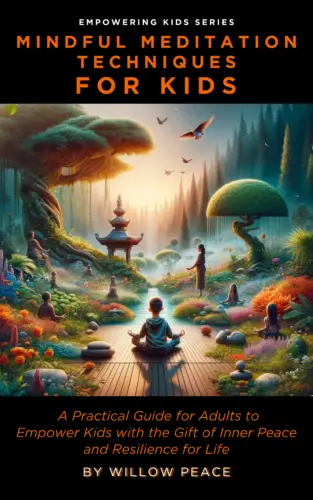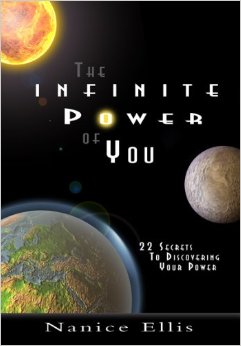By Nanice Ellis
Contributing writer for Wake Up World
This article examines fundamental aspects of the Simulated Universe Theory, and how it may explain timeless spiritual paradoxes. It is a companion piece to my article The Game of Life and How to Play It!, which explores the complex dynamics of living in a simulated reality — including practical ways to consciously create the life of your dreams!
Have you ever had a sense that life isn’t real, reality is an illusion, or you are just dreaming?
Believe it or not, most people have had at least a fleeting sense that something is just not right about our reality. But why would so many of us have this odd thought or feeling if it weren’t true? What if it is true and we are really living in a simulated reality?
This may seem a bit out-there, until you stop to consider that some very reputable physicists are now saying that reality is not “real”, and, in fact, there is a very good probability that we are living inside a sophisticated computer simulation. Of course, the Simulated Universe Theory isn’t yet widely accepted, however most quantum physicists agree that that the nature of reality operates according to mathematics and, for all intents and purposes, the entire universe can be summed up or explained digitally.
According to the Digital Physics principle, reality is generated by digital information and the electrical signals in your brain interpret that data into what you call reality. This means that nothing exists without consciousness. Moreover, just recently a quantum physicist by the name of Dr. James Gates Jr. discovered computer error-correcting code in the fabric of reality, while there are also reports of scientists observing pixels in microscopic images of nature. If our reality isn’t virtual, why is it pixelated and why would it include error-correcting code?
Actually, if we are living in a simulated reality, it explains many quantum quandaries about the universe and the nature of reality. For instance, many scientific experiments have concluded that reality only exists when it is observed, and, therefore, when there is no observer, there is no reality. There is also something called quantum entanglement where two entangled particles are separated but they still instantaneously communicate with one another, regardless of distance and even faster than the speed of light.
However, when pointing out quantum quandaries, we cannot forget about atoms. Atoms are the building blocks of literally everything, yet they are 99.9% empty space, and in fact, there is so little matter in our reality that the entire world could be condensed into a golf ball with plenty of room leftover for another planet or two.
These types of quantum phenomena have scientists stumped because reality just shouldn’t operate like this. However, if we are living in a simulated reality, it all makes perfect sense, and, in fact, each quantum phenomena perfectly explains how virtual games operate. For instance, in order to conserve hard drive space, as well as energy, the game player’s “reality” only pops into place as needed, and in a virtual reality anything can move instantly from one location to another because there is no time and space, and, therefore, things can travel faster than the speed of light. The Simulated Reality Theory also explains parallel universes and multi-universes simply as versions of the simulation that simultaneously operate.
Strange Phenomena
Furthermore, if we are living in a simulated reality, it also explains certain non-scientific phenomena; déjà vu, ghosts and other paranormal activity could be glitches in the program, psychic ability and intuition could simply be the result of accessing information within the program, reincarnation could be pre-programmed memories, or past life memories could be alternate running simulations. The Simulation Theory can also explain alien abductions, UFO sightings and other strange super-natural phenomena — because anything is possible in a virtual reality.
Even miracles can be easily legitimized by quantum jumping, shifting parallel universes or a radical change in programming where the programmer answers your prayers by rewriting specific code.
The Simulation Theory also explains how two or more people can have different experiences in the same situation or conflicting memories, and, in fact, there is a phenomena known as the Mandela Effect, where large groups of people remember the past differently, and it seems that the past changes accordingly. It is difficult to prove something like this for obvious reasons, however, what if we seamlessly move from one parallel universe to another, yet we keep our memories from the previous timeline? This would mean that some of us might be in a timeline that correlates with particular memories and some of us might be in a timeline that doesn’t correlate with particular memories. If this is true, it also means that we have the ability to quantum jump from one reality to another, thereby changing our experience of life without even knowing it.
But, Life Feels So Real!
Except for the occasional odd sense otherwise, life feels incredibly real, and, in fact, it all seems so real that it is difficult to believe that our universe is a simulation of some sort. Nonetheless, if we are living in a virtual reality, we literally have no “real” reference point to discern the difference between real and virtual, so we actually don’t know what real is. It is curious, however, that people who have had near death experiences often report that the afterworld seems more real than this one – well, maybe it is!
Honestly, even if we are living in a simulated world, there is no way to definitively know, but the concept of a virtual reality does offer a reasonable perspective to many unexplained mysteries of life, and it also explains many common spiritual paradoxes.
Decoding Spiritual Paradox
Many spiritual philosophies offer paradoxical teachings that have no basis in logic, and even lack basic common sense, however, when we approach these unusual concepts from a virtual perspective, they suddenly make perfect sense. Quite possibly, those first spiritual teachers actually knew that this reality was simulated, and they passed down hints in spiritual text.
In the context of a simulated realty, let’s examine 3 popular paradoxes:
1. Life is an illusion: Throughout history, many spiritual teachers have taught that life is an illusion, nothing is really happening and we are just dreaming in a sea of emptiness. As abstract as this concept sounds, in a virtual world nothing is happening, nothing exists and it is all a grand illusion.
2. Only this moment exists: Another common spiritual belief says that everything is happening at once and time is an illusion. It’s difficult to grasp onto this concept until we consider that in a virtual reality, time and space do not exist. Only this “moment” can be experienced because virtual life fills in around us as we move from place to place, and reality doesn’t “pop into position” until it needs to.
3. We are all One: Most spiritual philosophies agree that we are all connected, and, in fact, we are all One. In an actual reality, being connected as one is probably illogical, but in a simulated world, we are all connected by the program, and, therefore, it is impossible to be separate. We are One because there can only be One in a virtual reality.
Additionally, science typically clashes with spirituality, but when we approach both from a virtual model, all the pieces of the puzzle fit into position, allowing science and spirituality to finally meet.
What’s the Point of Simulating Reality?
Unlike popular sci-fi movies, we are probably not slaves to machines or prisoners held against our will. Instead, we are most likely the creators of this virtual world, or, at the very least, willing volunteers, but, what’s the point? Unfortunately, from our limited viewpoint, we can only guess the purpose of a virtual existence, but there are many possible scenarios.
Maybe, at some point in the distant future, humanity advances to transhumanism, in which we exceed human limitations and become “super” beings who are indestructible. Assuming this possibility, as an advanced civilization, we likely lose the authentic human experience, and, as such, might create simulations where we can experience life as mortal human beings – equipped with the free-will to make choices within the simulation, we can experience the full range of ups and downs with challenges and delights, while uncertainty and the quest for victory make for an intriguing virtual life. Likewise, as an advanced future race, we probably don’t experience anger, frustration, separation, loneliness or fear, so if we desire to have these human experiences, the only way to do so would be in a simulation.
Keep in mind that virtual time is very deceptive; one year in a simulation could be equivalent to one second outside the simulation — making an eighty year virtual lifetime pass by in the blink of an eye. Let’s face it, when time and space cease to exist, anything you imagine is plausible.
Another possibility is that our future-selves want to learn from the past, so they can avoid repeating the tragedies of history, or this simulation could be some type of experiential training, such as a 3D school where we experience the positive and negative consequences of our behavior, actions and choices. Then, of course, the reason for a simulation could be as simple as the fact that virtual games are fun and exciting because you can have any experience without risk. So, whatever happens, happens – no harm can be done in a virtual world because nothing is real – not even you.
Let’s also consider that there is not a “real reality” out there, and maybe, there is nothing more real than a virtual reality – meaning that everything in existence is virtual in nature.
Are We Really Powerless?
Indeed, the idea of living in a simulation can make us feel powerless, because it means that something other than us is in control and quite possibly controlling us. On the other hand, living in a simulation can mean that miracles are possible, magic can be expected and we really are limitless!
Once we understand how the simulation works and how to operate it from the inside, we can upgrade our minds for greater intelligence or creativity, download special gifts and talents or reprogram our bodies for perfect health and even agelessness.
We might also experience alternate versions of life, parallel realities and supernatural phenomena, and, maybe we can also download advanced abilities, such as telepathy, telekinesis and psychic ability. Cheat codes might also allow us to peak into the future before making a decision or maybe even go back in time to re-do a past mistake or missed opportunity.
This all sounds like sci-fi and it is, but sci-fi often has its roots in reality – or whatever this existence is.
Nevertheless, real or simulated, let’s get down to practicality because there are more essential elements to life than super powers and special abilities. If we are virtual beings in a virtual world, do we really have the power to manipulate our environment right now?
The answer is most definitely yes! There would be absolutely no point to a simulation if we didn’t have a way to influence virtual life. So, although we might be Sims, we still possess the free-will to make conscious choices, and, as such, we have the power to consciously create reality, even if it’s not real.
Additionally, as an expert in the field of manifestation, with over four decades of research and experiential study, I can confidently say that the laws of manifestation perfectly correlate with a simulated reality, and, in fact, when examined through a virtual model of reality, many facets of manifestation make a great deal more sense.
So, if we are living in a Simulated Universe, how do we influence it in order to have the best possible experience?
Firstly, you need to understand that you are playing The Game of Life, and secondly, you must clearly comprehend the underlying dynamics of this virtual game, so that you know exactly how to play it!
Part 2 of this article, “The Game of Life and How to Play it!”, we will explore the complex dynamics of living in a simulated reality, including practical ways to consciously create the life of your dreams!
You are love, you are light and all is well!
In grace, love & gratitude,
Nanice
Copyright: Nanice Ellis 2019. All rights reserved
The Infinite Power of You: 22 Secrets to Discovering Your Power
– by Nanice Ellis
If you knew you possessed infinite and intrinsic power, right now, who would you be? What kind of life would you live?
Reclaiming your infinite power means discovering who you really are and having the courage to express the real you. Discovering your real powerful self is a prerequisite for experiencing freedom, peace, love, abundance and everything you have ever desired. You are the answer to every question you have ever asked.
The 22 methods in this book will help you to reclaim and express the greatest, most powerful you.
‘The Infinite Power of You! 22 Secrets to Unlocking Your Personal Power’ is available here on Amazon.com
You can also check out Nanice’s other publications on Nanice.com/Books and Nanice on Amazon.
About the author:
 Nanice Ellis has been a professional Life Coach for over 17 years, successfully coaching women and men from all over the world. She is also an author, Theta Healer and Master Neuro Linguistic Practitioner.
Nanice Ellis has been a professional Life Coach for over 17 years, successfully coaching women and men from all over the world. She is also an author, Theta Healer and Master Neuro Linguistic Practitioner.
Helping people to make quantum jumps in their lives, Nanice’s very unique coaching style is often referred to as the “Nanice Effect”. By using powerful and proven manifestation techniques, Nanice coaches people to tap into the power of the Universe and live their dreams, bridging the gap from the imagination to the realization of that dream. She works with leaders, coaches, healers and anyone who wants to live life to the fullest. You can learn more about the coaching programs offered at: Coaching Programs with Nanice.
Nanice is the author of several books, including the inspirational The Infinite Power of You! and Even Gandhi Got Hungry and Buddha Got Mad! She is also the host of radio show Chai with Nanice. Her books are available at: Nanice.com/6/Books and here on Amazon.
To connect with Nanice visit Nanice.com or book a free consultation with Nanice here.
Recommended reading by Nanice Ellis:
- Escaping the Matrix of Depression – The Truth About Depression Shall Set You Free
- Waking Up From Religion
- Overcoming Negative Thinking – The #1 Cause of Chronic Depression
- Is Ayahuasca Mother Nature’s ‘Red Pill’?
- Waking Up In The Dream – The Real Secret to Manifestation
- Heal Your Family – Heal The World
- Raising Awake Children in a Broken School System
- Tired of Being a Negativity Sponge? 12 Ways to Prevent Energy Infiltration and Reclaim Your Energy
- Are Higher Vibrations Making You Sick? Integrating the Energetic Shift
- How to Heal Emotional Trauma
- Are You More Awake Than Your Family? 12 Ways to Heal Relationships When Your Family Is Still Asleep
Most People Will Stay Stuck in 2025—Will You?
Most people will watch the world change and do nothing. But you? I bet you’re a bit like us—you see the writing on the wall. The system isn’t built for freedom, and waiting around for things to get better isn’t a strategy.
What do you know about building wealth outside the system?
If you’ve been looking for a way to break free from the grind and earn in a way that actually aligns with your values, you need to see this.
Inside this FREE masterclass, you’ll discover:
- A proven business model backed by a 50-year-old company
- A plug-and-play system—no chasing, cold messaging, or weird sales tactics
- A way to generate income while focusing on what actually matters
Most people will sit on this and do nothing. The good news? You don’t have to be most people.
Click here to watch now.
 If you’ve found value in our articles, we’d greatly appreciate your support by purchasing Mindful Meditation Techniques for Kids—A Practical Guide for Adults to Empower Kids with the Gift of Inner Peace and Resilience for Life.
If you’ve found value in our articles, we’d greatly appreciate your support by purchasing Mindful Meditation Techniques for Kids—A Practical Guide for Adults to Empower Kids with the Gift of Inner Peace and Resilience for Life.
In the spirit of mindfulness, we encourage you to choose the paperback version. Delve into its pages away from screen glare and notifications, allowing yourself to fully immerse in the transformative practices within. The physical book enriches the learning process and serves as a tangible commitment to mindfulness, easily shared among family and friends.
Over the past few years, Wake Up World has faced significant online censorship, impacting our financial ability to stay online. Instead of soliciting donations, we’re exploring win-win solutions with our readers to remain financially viable. Moving into book publishing, we hope to secure ongoing funds to continue our mission. With over 8,500 articles published in the past 13 years, we are committed to keeping our content free and accessible to everyone without resorting to a paywall.











